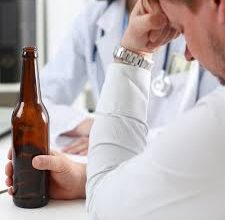When to See a Doctor About Erectile Dysfunction

Erectile dysfunction (ED), often known as impotence, is the inability to form or sustain a firm adequate erection for sexual intercourse. It is a common ailment that affects millions of men worldwide and can strike at any stage of life. While occasional ED is natural, particularly with age and stress, chronic ED might indicate underlying health issues and should not be overlooked. You should consult an Erectile Dysfunction Urologist for more information.
Here are some signs that indicate it is time to see a doctor about ED:
- Persistent ED
If you have difficulties attaining or keeping an erection for more than a few weeks, you should seek medical assistance.
- Frequent ED
Even if you do not have ED all the time, frequent instances might still be cause for concern, especially if they are getting worse.
- Sudden ED
If you have never experienced erectile dysfunction before and it suddenly appears, you should see a doctor to rule out any underlying medical issues.
- Painful erections
If you have discomfort during an erection, consult a doctor to establish the cause and receive appropriate therapy.
- Curved erections
A curved erection that makes sexual intercourse difficult or painful may be an indication of Peyronie’s disease and necessitates medical attention.
- Loss of libido
A considerable decrease in sex drive is connected with ED and may reflect underlying hormonal or psychological disorders.
- Other concerning symptoms
If you have any other issues in addition to ED, such as trouble urinating, blood in your sperm, or pelvic discomfort, you should visit a doctor for a thorough examination.
Why is it important to see a doctor about ED?
Ignoring ED can have a variety of consequences. It can cause tension, worry, and relationship issues. Furthermore, ED might be a symptom of underlying health problems such as heart disease, diabetes, or high blood pressure. Early detection and treatment of these illnesses can vastly enhance your general health and well-being.
What to expect when you see a doctor about ED
A doctor will most likely inquire about your medical history, lifestyle habits, and any drugs you are currently on. They may also do a medical examination to look for underlying physical reasons for ED. Depending on the results of the first examination, more tests may be required, such as blood tests, hormone testing, or an ultrasound.
Erectile dysfunction is a common problem that should not make you feel ashamed or embarrassed. If you have an ED, you should consult your doctor. Early evaluation and treatment can help you restore your sexual health and enhance your overall well-being.




